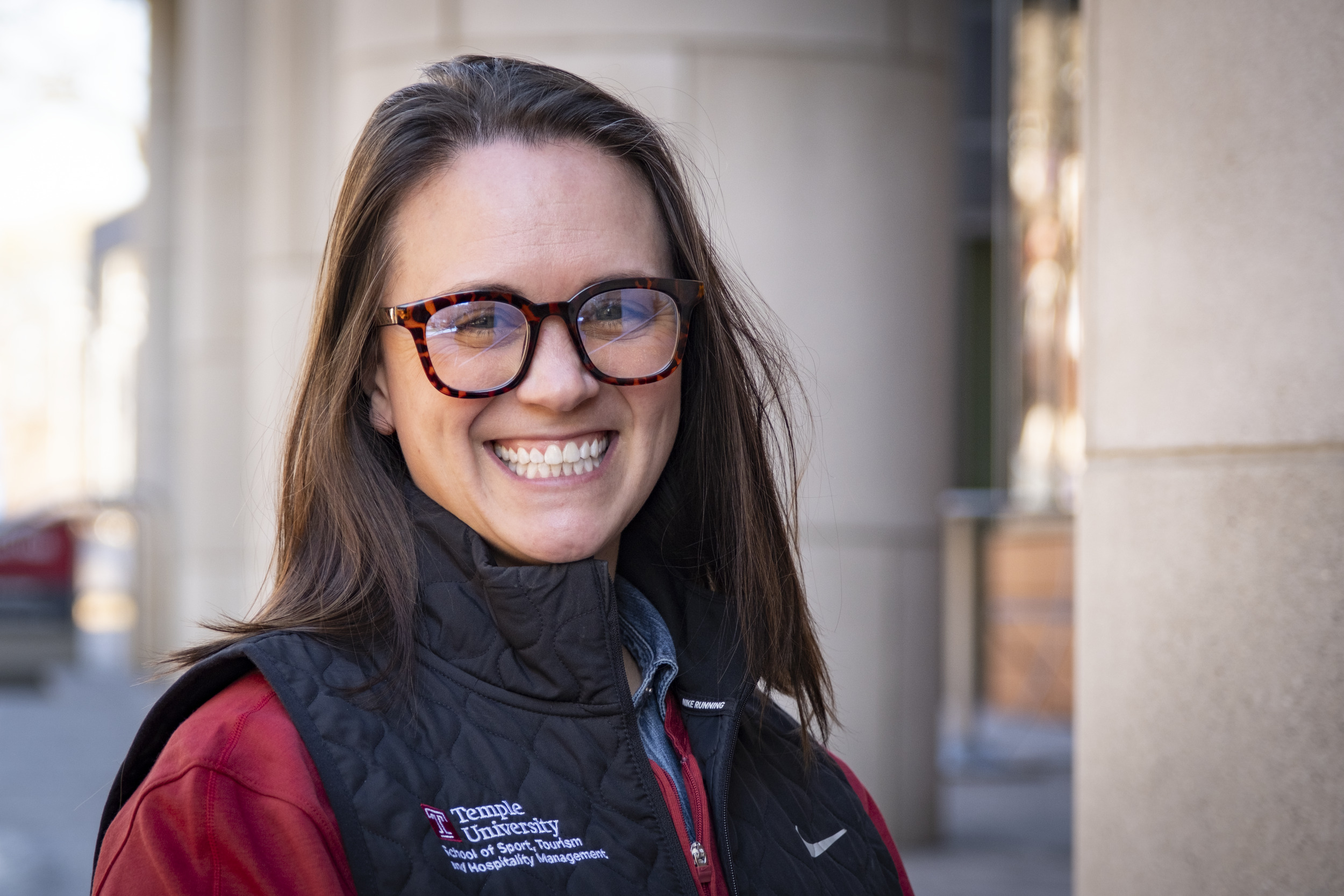For Temple University, supporting student-athletes goes beyond the game. Out of more than 100 submissions nationwide, Temple is one of three schools chosen to receive the 2025 NCAA Innovations in Research and Practice Grant, along with Bowling Green State University and Emory University. The schools will share a $100,000 award to support projects designed to enhance athletes’ mental health, career skills and overall well-being. The two-year grant, now in its 11th year, funds groundbreaking projects that aim to improve the student-athlete experience.
Temple’s winning submission, led by a research team in the School of Sport, Tourism and Hospitality Management (STHM), is titled AI-Powered Mentorship for Holistic Athlete Development. The project will enter full development this fall, with the goal of finalizing the app and preparing it for release to NCAA member institutions in 2027. At the heart of the work is JournAI, an AI-driven mentorship app co-developed by Elizabeth Taylor, associate professor at STHM, alongside Jeff Nyquist, former Temple men’s soccer player Robin Goetz and former Temple volleyball player Taylor Davenport.
“I think the project’s innovative approach and how it really embraces technology is what stood out to the NCAA,” said Taylor. “The purpose of JournAI is not to replace the human support already available to our students but to enhance it.”
The app was inspired by a shared passion among the research team to prepare student-athletes for success beyond sports. It allows athletes to text with a virtual mentor named “Sam,” guiding them through career planning, leadership skill development, mental health support and financial literacy.
Pilot testing has already shown promise. In its first phase, 40 students used JournAI to explore personal values, set career goals and talk through challenges. With NCAA support, the next round will expand to 75–100 student-athletes, who will help refine the tool.
For Taylor, the recognition itself is a milestone. “This isn’t just about the funding—it’s about legitimacy. The NCAA, the largest governing body in college athletics, believes in the work we’re doing. That recognition is what matters most,” she said. “Out of more than 100 applications, being selected as one of only three institutions shows the caliber of Temple’s research and the impact we’re capable of making as an R1 university.”
JournAI also tackles one of the biggest hurdles athletes face: time. With practices, games and travel, many miss out on career workshops, networking events and campus resources. The app puts those opportunities directly on their phones, giving student-athletes access to the same support their peers receive in person, without the added strain on their schedules.
Beyond convenience, the app sparks deeper, more holistic conversations about life after college. It helps student-athletes plan for the transition from sport to adulthood, whether that means going pro or entering the workforce. Taylor said the vision is even broader: “The opportunities we have to build conversations through Sam are endless—healthy relationships, communication, financial literacy and mental well-being. It’s about preparing athletes for life, not just sport.”
Those conversations can be as practical as learning about loans or as personal as managing anxiety. “Sam can celebrate with athletes, empathize with them or simply give them space to talk through challenges. Sometimes what they need most is an unbiased listening ear,” Taylor added.
Over the next two years, the research team will collect data from student-athletes in the second pilot phase. Using surveys and feedback, they will refine JournAI’s features and prepare the platform to be shared with all NCAA member schools. The team’s long-term hope is for JournAI to grow into a tool not just for athletes, but for students across campuses nationwide.
For Taylor, the project is deeply personal. “I’m a former two-sport college athlete and a former coach, so supporting student-athletes has always been a passion of mine,” she said. “As college sports become more commercialized, we risk losing some of the holistic development opportunities I had as a student-athlete. This project is about bringing that back.”

